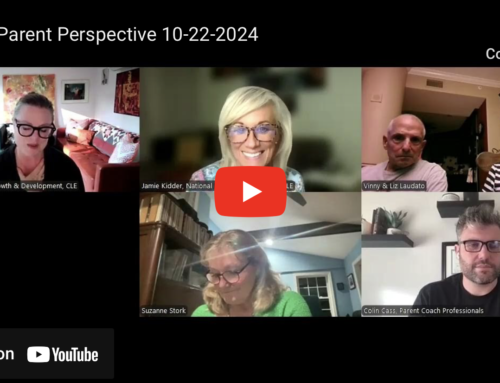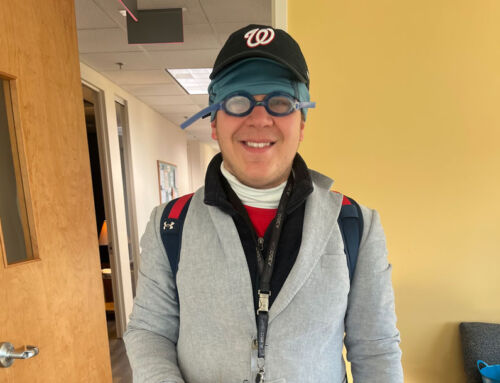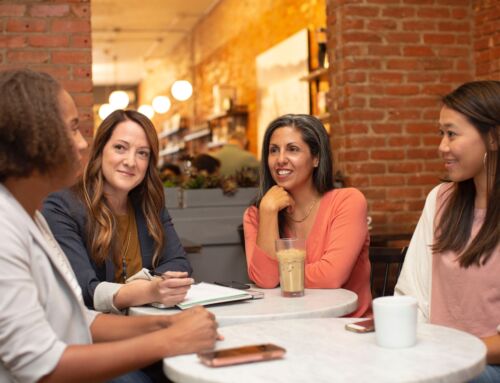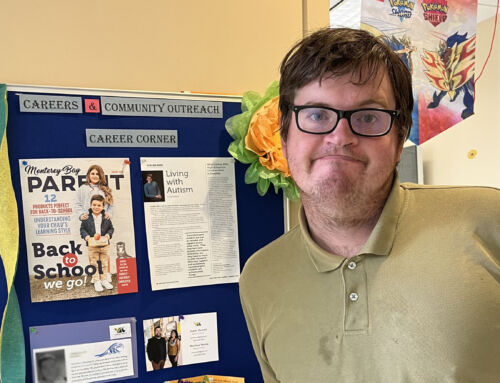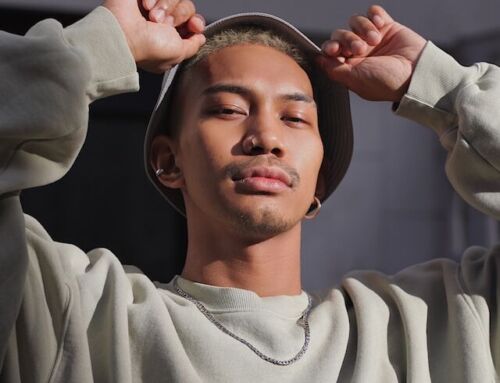By Janet Price, Regional Director of Community Education and Transition, CLE Rockville
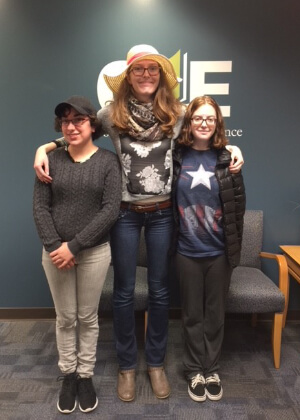
What does being a feminist with a disability mean to you?
Tat: When you talk about feminism, people think all girls are docile. But girls can also game and play sports.
Sarah: I have to fight harder and in different ways than other feminists would, like talking to different specialists who may not believe me. It seems like they’re always men.
Jules: I’m on the spectrum, and I can appear fragile and vulnerable. I’ve learned that you have to be proactive, and can’t let others define you. At CLE I’ve slowly learned to become more proactive. Being a feminist is tapping the natural abilities you have inside.
Sarah: My disabilities can interact with my communication and thought pattern. I seem childish, and people are treating me in a way that makes me uncomfortable, but I have difficulty communicating that. When you are a female with disabilities you have a bigger fight than other people with disabilities.
Jules: Would you say people are more protective because you’re female?
Sarah: Yes.
Jules: Men – it’s not like they get a free pass, but it’s usually the men who get accepted first, before people focus on women with disabilities.
Tat: Some women talk about their disabilities. Paris Hilton admitted that she has ADHD and is taking medication.
Sarah: It’s easier with ADHD and dyslexia. There is still a stigma with autism and mental health.
Jules: Either people don’t care, or don’t want to be near you. If you’re high functioning with an autism spectrum disorder, it’s easy for people to just sweep you under the rug.
Sarah: Your disability affects you through everyday life, and people think it’s your fault.
Are there other ways that women with disabilities are thought of differently?
Jules: There’s a stereotype that women are more emotional.
Sarah: People say really mean things to women with disabilities.
Tat: There was a student from Montgomery College who asked me for money. I gave her $10. As an autistic female, I can be a target.
What are some of the things that you are learning at CLE to help empower you as a feminist and as a woman with a disability?
Sarah: I’m learning how to communicate without being pushy and attention-seeking.
Tat: I’m learning to be more social and outgoing, and learning to say no to people who ask for money.
Jules: I’m learning to act and react around guys as friends, and still feel competent and like a feminist.

